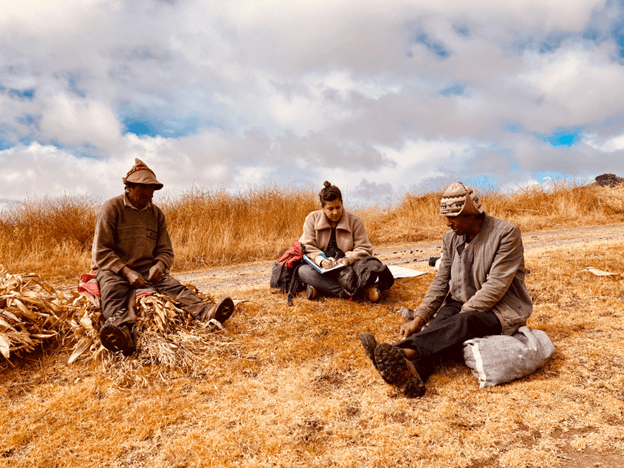By Ruby Marie Marsh ’17
During the last year, the Humanities Council’s 2022 Flash Grants have launched 24 projects by faculty, staff, and students. These initiatives, which explored a wide array of topics, received funding from the David A. Gardner ’69 Magic Grant to transform research and community, and to reimagine how people can connect over the pursuit of knowledge on and off campus. Several projects are highlighted below.
Empowering Campus Dancers
For her Flash Grant project “The Dancer’s Health Initiative,” Amaya Dressler ’25 began strengthening support systems for Princeton University student dancers. She organized a series of workshops for undergraduates, with subjects ranging from managing academics to preparing for professional dance careers.
In one workshop at the beginning of the school year, juniors and seniors shared advice with first-year students about how to balance dance and studying in college. Another workshop featured a dinner, where attendees received tips on well-being from Carinthia Bank ’17, a professional ballerina turned mental health professional.
Dressler also planned events with outside experts. Ana Bracilovic (Princeton Spine and Joint Center), doctor and founder of the Princeton Dance Medicine Center, spoke alongside physical therapist and dance medicine specialist Allison Jackson (Penn Medicine Princeton Medical Center) and outpatient rehab manager Megan Advani (Penn Medicine Princeton Medical Center) about injury prevention. Princeton University Arts Fellow Christopher “Unpezverde” Núñez (Lewis Center for the Arts), a visually impaired choreographer, advocated for increasing accessibility in the dance community to people with disabilities. Dancer Nicole Sabella (Mark Morris Dance Group) shared practices for improving body image and nutrition.
Dressler framed her project as the start of a grander endeavor. She hopes to provide ongoing resources about the often overlooked issue of physical and mental health within the dance community at and beyond the University.
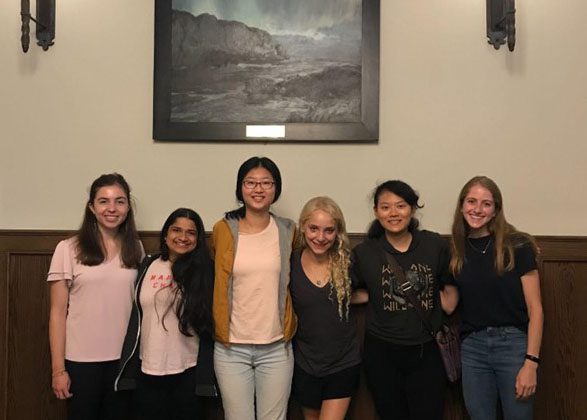
Digitizing the Legacy of Medieval Ukraine
In their Flash Grant project, “Incorporating Ukrainian Cultural Heritage into the Index of Medieval Art Database,” Maria Alessia Rossi (Art & Archaeology) and Pamela Patton (Art & Archaeology) supported a Ukrainian scholar whose work has been disrupted by the war.
A Byzantine iconography expert who fled Ukraine in February 2022, Julia Matveyeva contributed to the online database of the University’s Index of Medieval Art. Matveyeva catalogued mosaics and paintings from St. Sophia in Kyiv, an influential Ukrainian cathedral deemed a UNESCO world heritage site.
Until now, the Index had possessed only print records of the monument, consisting of index cards along with black and white photos, dating back to the 1940s. Matveyeva’s digital additions made the images, as well as their metadata, accessible to the many off-campus researchers who use the catalogue.
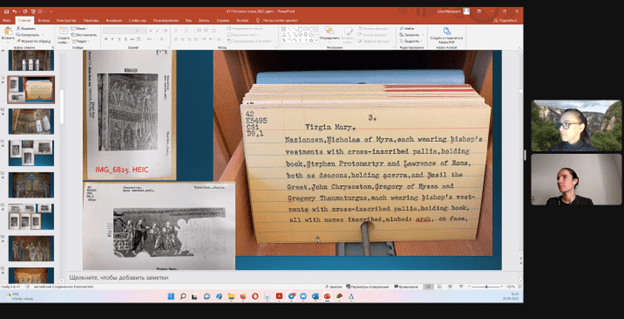
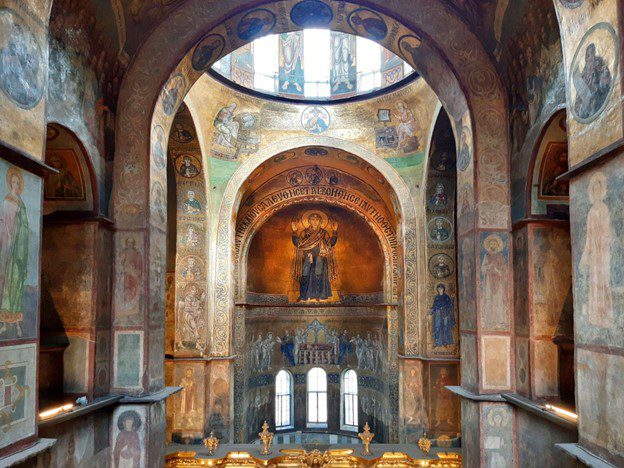
Constructing Felted Architecture
In search of new ways to work with renewable and organically growing, degradable materials, V. Mitch McEwen (Architecture) collaborated with graduate student research assistants Laura Fegely (Architecture) and Kaleb Houston (Architecture) on the project “Felting Algorithms.”
The team devised algorithms to prototype the design and fabrication of felted architecture and to translate needle-felting into robotic paths as well as Computer Numerically Controlled cuts and scores. One step involved the design and fabrication of 3D printed parts for attaching felting needles to the arms of the ABB robots in the Architectural Lab.
By the end, they discovered more advanced techniques for handling pressed wool felt. The findings could affect insulation; formwork, in which people build structures for shaping concrete poured into them; or cladding, which bonds one metal to another. Students can now examine the prototypes, which McEwen has displayed in the Biofabrication shed, the smallest lab on campus, for further study.
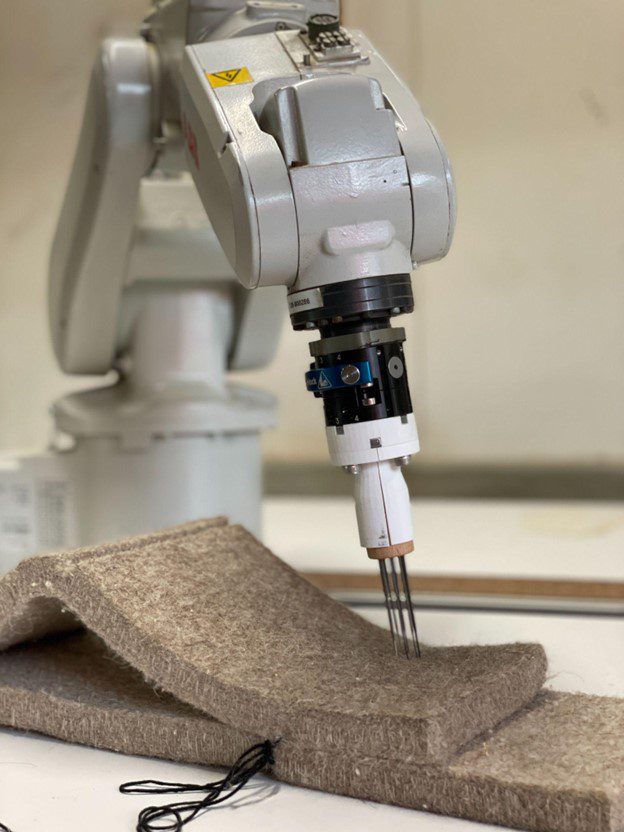
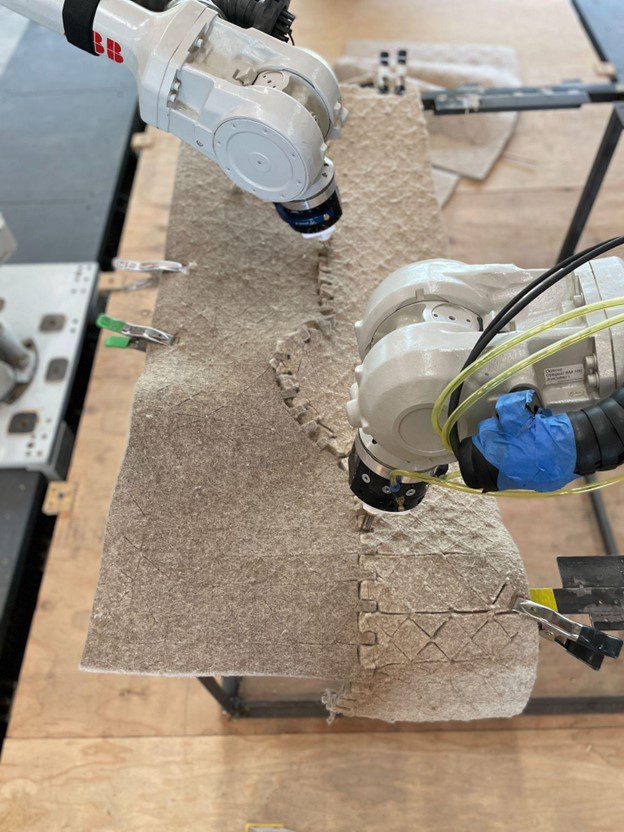
Preserving History and Culture in Peru
Daniela Salcedo Arnaiz (Spanish and Portuguese) initiated a mobile community library and a creative writing space in the Southern Peruvian Andes for her Flash Grant project, “Literary Peru: Promoting Critical Citizenship Through Creative Reading and Writing.” With travel and lodging funded by the Department of Spanish and Portuguese, she visited two peasant communities, Mullak’as-Misminay and Kacllaraccay.
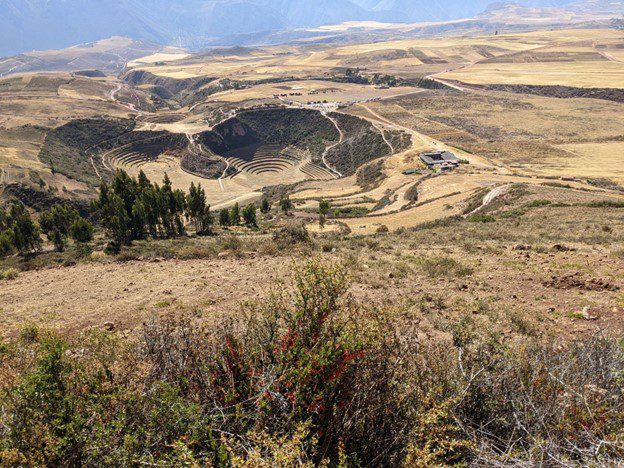
Salcedo Arnaiz interviewed individuals from the communities to gather testimonies and learn about their needs. One participant explained the importance of ancestral cultural practices such as ayni and mink’a, based on the principles of reciprocity and mutualism. Another emphasized the vitality of the Quechua language, even among the younger generations to this day. A third community member recounted the fear of losing what her ancestors had learned throughout centuries of close contact with nature, including about the healing properties of plants that grow at that high altitude.
“There was a common thread in all the testimonies: identity, collective memory, and the loss or maintenance of their traditions,” Salcedo Arnaiz concluded. She made a visual, oral, and written register for documenting everyday practices in Mullak’as-Misminay and Kacllaraccay. This resource aims to support the communities in reflecting on their history, with a view to shaping how they will embrace their future.
Learn more about the 2022 Flash Grant projects on the Humanities Council website.




